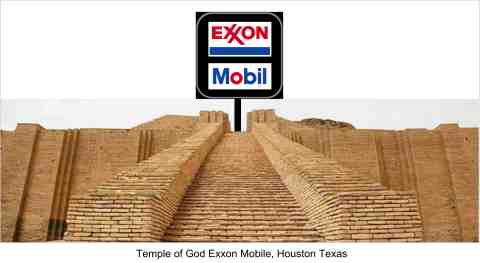The Story Tellers
May 4, 2018

—excerpt from Homo Deus, by Yuval Noah Harari
“12,000 years ago, at the start of the Agricultural Revolution, “Farmers believed in stories about great gods. They built temples to their favorite god, held festivals in his honor, offered him sacrifices, and gave him lands, tithes and presents. In the first cities of ancient Sumer, about 6,000 years ago, the temples were not just centers of worship, but also the most important political and economic hubs. the Sumerian gods fulfilled a function analogous to modern brands and corporations. Today corporations are legal, fictional entities that own property, lend money, hire employees and initiate economic enterprises and, believe it or not, the Supreme Court considers them to be persons. In the ancient cities of Uruk, Lagash and Shurupak the gods functioned as legal entities that could own fields and slaves, give and receive loans, pay salaries and build dams and canals,” much like corporations do.” – (italics passage mine)
__________________________________________________
So, I wonder, how long will it be before the Supreme Court elevates corporations to be gods?
posted by Jim Culleny
1/18/22
Living on Paper
May 3, 2018
—excerpt from Homo Deus, by Yuval Noah Harari

“Hunter-gatherers spent their days climbing trees, looking for mushrooms, and chasing boars and rabbits. Their daily reality consisted of trees, mushrooms, boars and rabbits. Peasants worked all day in fields…their daily reality was the feeling of muddy earth under bare feet, the smell of oxen…and the taste of warm bread fresh from the oven. In contrast, scribes in ancient Egypt devoted most of their time the reading, writing and calculating. Their daily reality consisted of ink marks on papyrus scrolls, which determined who owned which field, how much an ox cost and what yearly taxes the peasants had to pay. A scribe could decide the fate of an entire village with the stroke of a stylus.”
Related: Before the Ink Dries